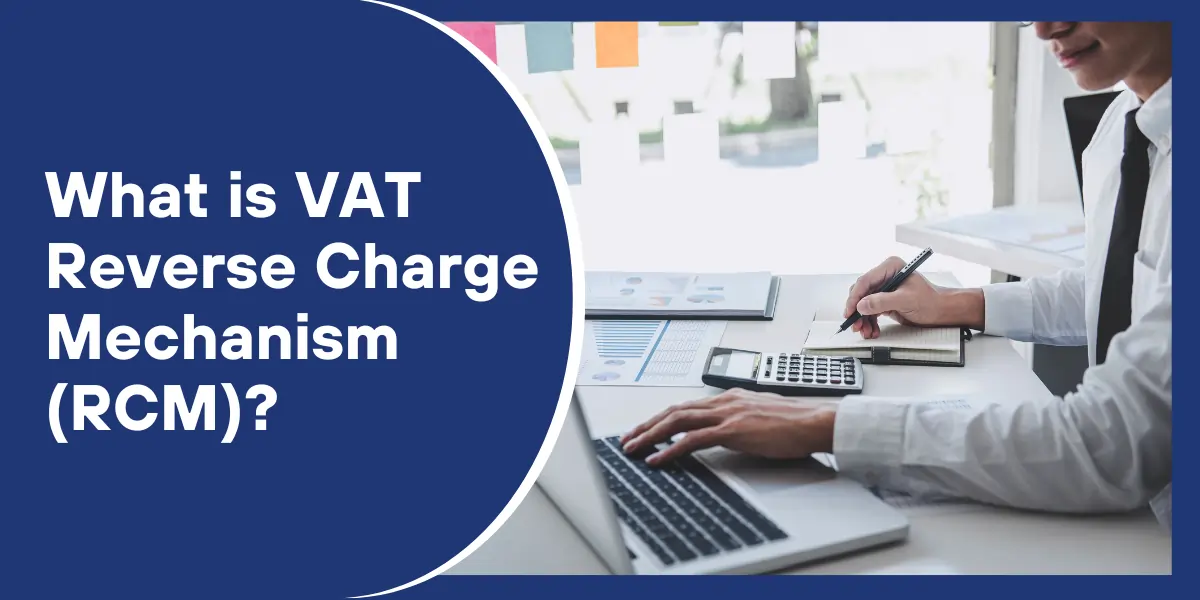
What is VAT Reverse Charge Mechanism (RCM)?
Businesses outside of the UAE are no longer required to register for VAT in the UAE thanks to the Reverse Charge Mechanism (RCM) under VAT. Transactions from across borders are the primary scenario for the reverse charge mechanism under VAT.
A normal business arrangement involves the supplier providing items to the clients and collecting VAT, which is then paid to the Federal Tax Authority (FTA). Reverse charge mechanism (RCM): The buyer or end user pays the tax directly to the government authority; the supplier does not charge VAT to the customer.
The buyer becomes responsible for reporting a VAT transaction instead of the seller because the importer is exempt from paying VAT. Each quarter, the recipient must include the VAT on sales (output VAT) and the VAT on purchases (input VAT) in their VAT return.
The VAT does not apply to enterprises that are not located in the United Arab Emirates if the supplier is foreign-born and does not operate a business there. As a result, inhabitants of the United Arab Emirates who receive products from a supplier located outside the country are required to pay VAT on a reverse charge basis.
Reverse Charge Mechanism's Applicability Under UAE VAT Law
Reverse charges are relevant in the following situations:
• Importing products and services from both GCC and non-GCC nations. The provider of these products or services must be based outside of the United Arab Emirates, and it’s possible that they don’t have a company there.
• Buying products from a specified area
• The supply of diamonds and gold
• Buying gold and diamonds to resell or use in more manufacturing
• The UAE-registered recipient receiving hydrocarbons from a registered source for resale
• Delivery of crude or refined oil to a registered receiver in the United Arab Emirates by a registered supplier
• The provision of processed or raw natural gas to a registered recipient in the United Arab Emirates by a registered supplier
• The production and delivery of any type of energy to a registered recipient in the United Arab Emirates from a registered supplier
How does a service’s reverse charge mechanism operate?
For a better understanding of the reverse charge method under UAE VAT, consider the following example involving an imported product:
XYZ, a VAT-registered company in the United Arab Emirates, imports items from ABC, a company in the United Kingdom. ABC Company is exempt from filing returns or paying taxes in the United Arab Emirates because it is not registered there. Due to their purchase of goods from a non-UAE based supplier, ABC Firm in the UAE will need to report the reverse charge on their applicable VAT return. In this instance, the UAE is the place of supply for VAT purposes since the recipient accounts for the VAT under the reverse charge process.
The example above concludes that the net effect of the forward charge basis and the reverse charge mechanism is the same.
The transfer of VAT payment responsibility from the provider to the recipient is the only distinction in reverse charge VAT.
It has been transferred from ABC Firm to XYZ Firm in the preceding illustration. It may be said that the idea of a reverse charge system equalizes and lessens the distinction between domestic and foreign suppliers.
Regarding the reverse charge transaction, how would recipients handle it?
Companies should figure out how much tax they have to pay to the Federal Tax Authority (FTA), account for the VAT throughout the purchasing process as output tax, and then report that amount in their VAT return. If feasible, businesses may submit an input credit claim. Make sure you save all required records, such as invoices, for future use.
What conditions must be met in order for the reverse charge mechanism to function?
a) The recipient of the products or services needs to have a valid VAT registration.
b) Appropriate documentation of supplies subject to reverse charge must be maintained by each registered business owner.
c) It should be indicated on invoices, receipt vouchers, and refund vouchers whether reverse charge is required for the payment of taxes on that specific transaction.
The proper use and timing of the Reverse Charge Mechanism (RCM) concept are intricate matters that require expert and knowledgeable advice to specify in accordance with UAE VAT laws. The Federal Tax Authority (FTA) has authorized IBR Group as a tax agent. They can assist you in comprehending the idea of the Reverse Charge Mechanism under VAT.
Get in touch with IBR Group if you have any questions about RCM VAT in the United Arab Emirates. All aspects of VAT, including registration, filing of returns, VAT audits, VAT refunds, accounting, and VAT deregistration, are covered.
